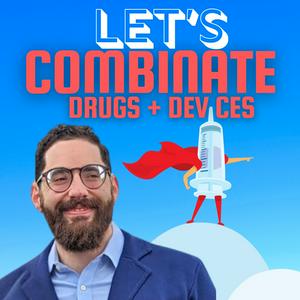In this episode of Let’s ComBinate: Drugs + Devices, host Subhi Saadeh breaks down ICH Q3, the family of guidelines that define how impurities are identified, evaluated, and controlled in drug substances and drug products.
Subhi explains what impurities are, why zero impurities is unrealistic in scalable manufacturing, and how ICH Q3 establishes a risk-based framework to protect patient safety and product quality. The episode walks through the structure of Q3A through Q3E, covering impurities formed during drug substance synthesis, degradation in drug products, residual solvents, elemental (metal) impurities, and extractables and leachables highlighting where drug delivery systems and combination products explicitly come into scope under Q3E.
This episode is a high-level, practical overview focused on how to read ICH Q3, how the sections fit together, and where the guideline applies and stops across the drug product lifecycle.
⸻
Timestamps
00:00 Welcome to Let’s ComBinate
00:12 Introduction to ICH Q3
00:25 What Are Impurities and Why They Matter
00:51 Sources of Impurities and Risk-Based Control
02:11 Structure of ICH Q3 (Q3A–Q3E)
05:30 How to Read and Use ICH Q3
07:22 Q3E, Extractables & Leachables, and Drug Delivery Systems
09:21 Wrap-Up and Next Episode Preview
Subhi Saadeh is the Founder and Principal at Let's Combinate. With a background in Quality, Manufacturing Operations and R&D he's worked in Large Medical Device/Pharma organizations to support the development and launch of Hardware Devices, Disposable Devices, and Combination Products for Vaccines, Generics, and Biologics. Subhi serves currently as the International Committee Chair for the Combination Products Coalition(CPC) and as a member of ASTM Committee E55 and also served as a committee member on AAMI's Combination Products Committee.For questions, inquiries or suggestions please reach out at letscombinate.com or on the show's LinkedIn Page.


